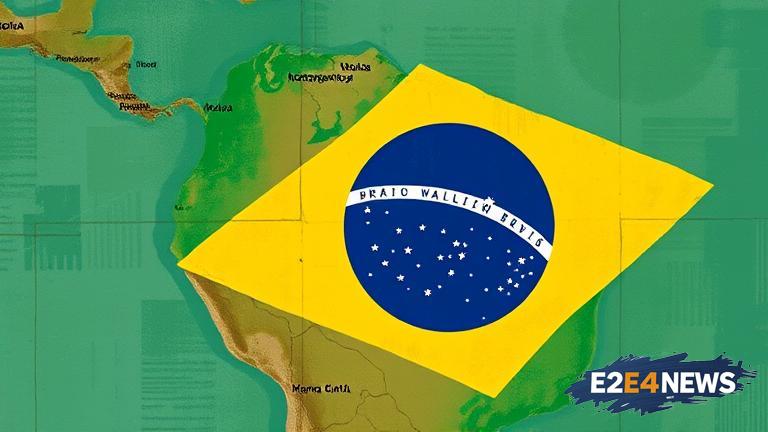The Brazilian government has decided to prioritize local relief measures to mitigate the effects of US tariffs on its economy, rather than opting for retaliation. This move is seen as a strategic decision to protect the country’s agricultural sector, which is a significant contributor to its GDP. Sources close to the matter have revealed that the government is working on a package of measures to support farmers and exporters affected by the tariffs. The US tariffs on Brazilian goods, including steel and aluminum, have been in place since 2018, and have had a significant impact on the country’s economy. Despite this, Brazil has chosen not to retaliate, instead focusing on finding ways to support its domestic industries. The government has been working closely with farmers and exporters to identify areas where support is needed most. This includes providing financial assistance, as well as helping to diversify export markets. The decision to prioritize local relief is seen as a pragmatic move, given the current trade tensions between the US and other countries. Brazil is also working to strengthen its trade relationships with other countries, including those in the EU and Asia. The country’s agricultural sector is a significant player in the global market, and the government is keen to protect its interests. The US tariffs have had a disproportionate impact on small and medium-sized farmers, who are struggling to stay afloat. The government’s relief measures are designed to help these farmers, as well as larger exporters. The package of measures is expected to include a range of support, from financial assistance to help with marketing and export promotion. The government is also working to improve the country’s infrastructure, including its ports and transportation networks. This will help to reduce costs and increase efficiency for exporters. The decision to prioritize local relief has been welcomed by farmers and exporters, who see it as a positive move. However, some have expressed concerns that the measures may not go far enough to address the impact of the tariffs. The government has said that it will continue to monitor the situation and adjust its support measures as needed. The US tariffs have also had an impact on other countries, including Argentina and Chile. Brazil’s decision to prioritize local relief is seen as a model for other countries to follow. The government’s approach is also seen as a way to reduce dependence on the US market, and to diversify its trade relationships. Overall, the decision to prioritize local relief is a significant move, and one that is expected to have a positive impact on Brazil’s agricultural sector. The government’s support measures are designed to help farmers and exporters, and to protect the country’s economic interests. As the trade tensions between the US and other countries continue to escalate, Brazil’s decision to prioritize local relief is seen as a pragmatic and positive move.





